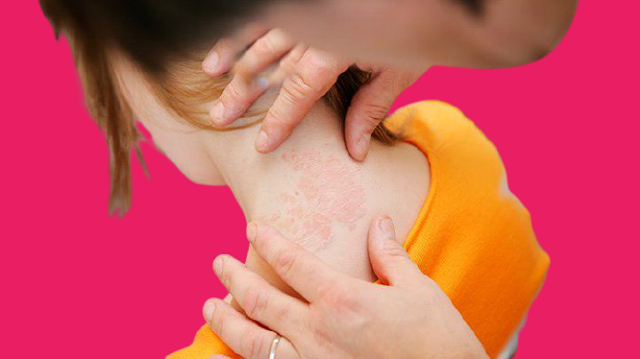Everything Wonder About Eczema!
Everything Wonder About Eczema!

Everything Wonder About Eczema!
"With the cooling of the weather, notably the xerotes and skin condition problems on the skin began to evoke. skin doctor Dr. Füsun Bilgin Karahallı told people who were interested by the topic.
Eczemawhat? At what ages and in which parts of the body is it seen?
Eczema is a skin disease that occurs as a result of the inflammatory reaction of the skin against external (environmental) or internal factors. It progresses with active periods known as exacerbations and remission periods that show no symptoms (or few symptoms).
In the early stages, it can be seen as red, fluid-filled blisters, leaky areas, and dry crust thickened lesions as it progresses. More or less itching occurs at every stage.
Although it is seen at all ages, some species are more common in adults, some in infants and children ( Napkin dermatitis is more common in the diaper area of babies before the age of 2, Contact dermatitis is usually seen in adults, Atopic dermatitis is seen in infants, children and adults, but the rate is less in adults).
Eczema can be seen in every area from scalp to feet. However, depending on the type of eczema, certain parts of our body can be involved. Atopic dermatitis; In infancy, it is frequently located on the cheeks, arms and knees, while the inner part of the arms and the back of the knees are more involved in children and adults.
What are the types of eczema?
Atopic dermatitis, Allergic contact dermatitis, Irritant contact dermatitis, Napkin dermatitis, Dyshidrotic dermatitis, Numular dermatitis, Xerotic dermatitis (winter eczema), Stasis dermatitis (varicose eczema), ear eczema, eyelid eczema, hand eczema It can also be classified according to the regions in our body.
Why does eczema occur and who is more common?
Eczema occurs when environmental and personal factors come together.
As environmental factors , we can count the irritants, chemicals, sunlight, radiation, ambient temperature and humidity.
Psychological stress, genetic factors, and medications can be counted as personal factors .
For example, in Atopic dermatitis; In addition to the effects of personal factors such as genetic predisposition and stress, environmental temperature and humidity, irritating agents such as woolen clothes, allergens such as pollen and animal hair may also have an effect.
Eczema type diseases can be seen frequently in some professional groups. Cleaning workers, housewives, hairdressers, construction workers, cooks and health personnel who come into contact with water and irritant substances are among these groups.
Does the severity of eczema increase in some periods? Which periods are the periods when eczema is intense?
Eczema is an itchy skin disease. Lesions, which are watery and oozy in the beginning, as they become chronic, take a dry crust and hard appearance, but there is itching in every period.
There are some triggering agents depending on the type of eczema and there may be periodic triggers related to them. Stress, weather conditions, contact agents, and dry skin can trigger and exacerbate eczema from time to time.
Especially in elderly patients, Xerotic dermatitis (winter eczema) is common in those who do not moisturize their skin in winter. As the dryness increases in atopic dermatitis, attacks increase. The group we call dyshidrotic dermatitis is more common with increased sweating especially in summer.
How do people with eczema reduce symptoms? How should their daily maintenance be?
Eczema disease is treated according to the severity of symptoms, location and age of the patient. Corticosteroid creams and moisturizing agents are most commonly used during periods of exacerbation. In addition to these, there are other local and systemic treatments. After the attack time of the disease, the triggering agents should be avoided as much as possible and moisturizers should not be neglected for the continuation of the well-being.
Prolonged contact with water and soap causes the loss of the natural protective layer of the skin. Therefore;
• It is more appropriate to clean hands with an odorless and colorless cleanser suitable for the pH of our skin instead of soap.
• It is more appropriate to wash hands and body with warm water instead of hot or cold water.
• Especially in the long course (chronic) form of the disease, moisturizers can help regain the moisture lost by the skin, so daily use is recommended.
Is it possible to completely solve the eczema problem?
Eczema is one of the long-lasting (chronic) diseases that usually progress with exacerbation and improvement. Although its course varies, especially Atopic dermatitis regresses with age. After treating the acute exacerbation period, avoiding the triggering factors and moisturizing the skin daily will reduce the frequency of attacks as much as possible.
Is it harmful for people with eczema to go out to the sun? Should they use sunscreen?
There is no harm for eczema patients to go out to the sun. They can also use sunscreen. However, the protector they use should be specific for skin prone to eczema.
Should people with eczema problem use dermocosmetic products for a more comfortable life?
Dermacosmetic products and medical device creams indicated in this area are important and should be used in reducing the frequency of attacks and symptoms.
Especially moisturizers are very important in eliminating the dryness of the skin caused by the deterioration of the barrier function of the skin and increased water loss from the skin. Because the cracks that occur when the skin starts to dry cause allergen and irritant substances to easily enter the skin, thus causing eczema. Even if there are no signs of active inflammation, moisturizers should be used several times daily and especially after a bath.








No comments